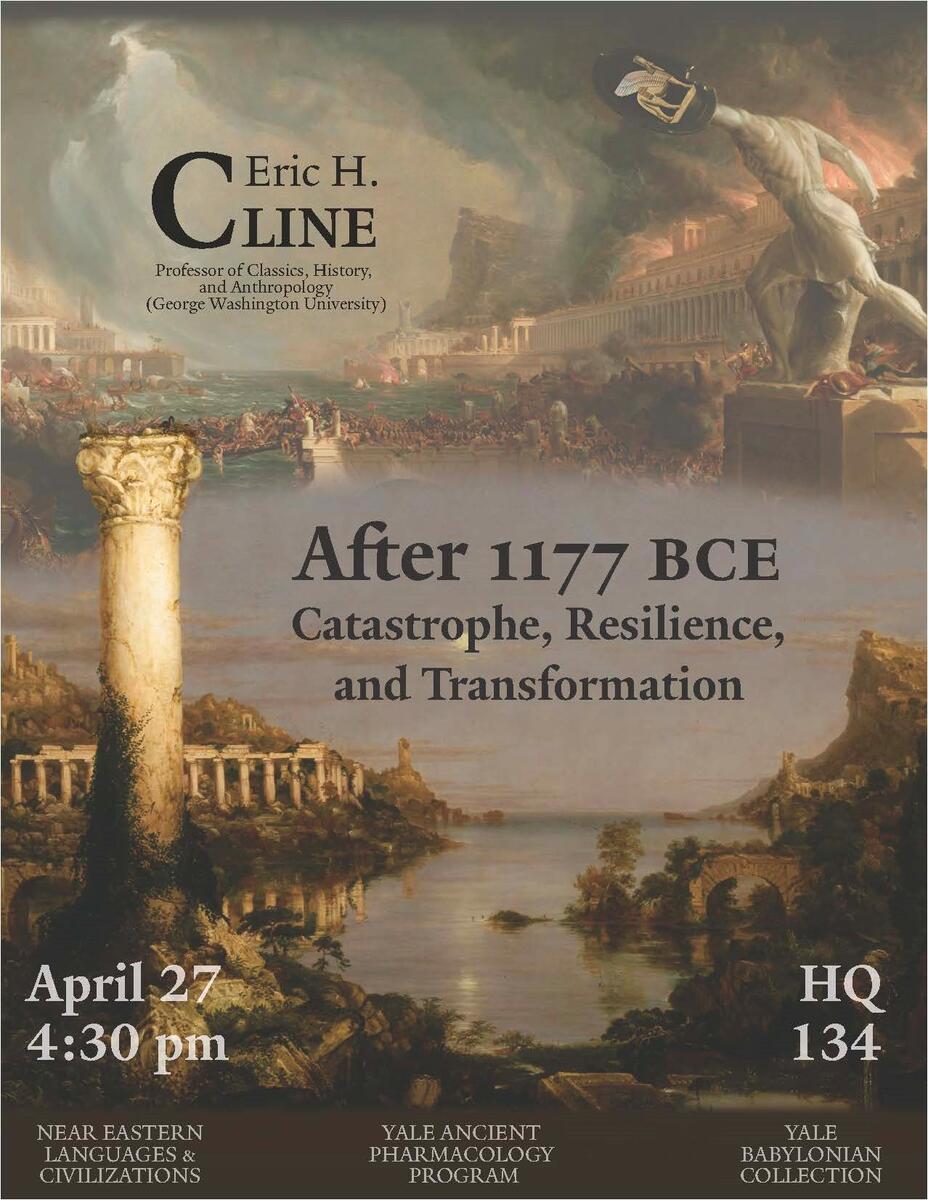After 1177 BCE: Catastrophe, Resilience, and Transformation
Eric Cline, Professor of Classics, History, and Anthropology
George Washington University
Thursday, April 27, 2023
HQ 134, 320 York Street
4:30 – 5:30
*Reception to follow
The centuries following the Late Bronze Age Collapse in the Aegean and Eastern Mediterranean was a time of catastrophe, but also of rebirth and resilience — it was less of a Dark Age and more of a reboot for many of the societies which were affected. While there are examples of failure to thrive or even to survive in some cases, others managed to adapt and transform. In effect, we have eight case studies of what to do (and what not to do) in the event of a systems collapse, ranging from the Assyrians to the Egyptians to the Mycenaeans and others in between. Of particular interest, and potential use, is discussing all of this in terms of panarchy and the Adaptive Cycle, resilience (and resilience theory), as well as modern definitions for adapting, coping, and transforming as used by the IPCC (“Intergovernmental Panel on Climate Change”), which has considered both climate change and disaster risk management for extreme events. Using these approaches, we can propose a ranking of which societies fared the best and which the worst in the aftermath of the Collapse, as well as considering the possible reasons why.
Brief Bio:
Eric H. Cline is Professor of Classics, History, and Anthropology, the former Chair of the Department of Classical and Near Eastern Languages and Civilizations, and the current Director of the Capitol Archaeological Institute at George Washington University, in Washington DC. A National Geographic Explorer, NEH Public Scholar, Getty Scholar, and Fulbright Scholar with degrees from Dartmouth, Yale, and the University of Pennsylvania, he is an active field archaeologist with more than 30 seasons of excavation and survey experience in Israel, Egypt, Jordan, Cyprus, Greece, Crete, and the United States, including ten seasons at Megiddo (1994-2014), where he served as co-director before retiring from the project in 2014, and another ten seasons at Tel Kabri, where he currently serves as Co-Director. He is the author or editor of 20 books and nearly 100 articles; translations of his books have appeared in nineteen different languages.
